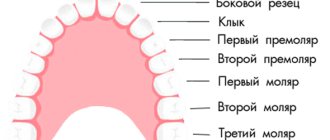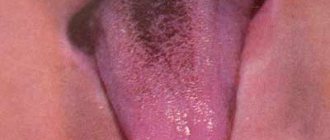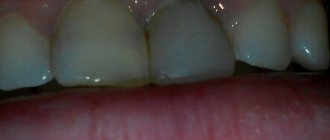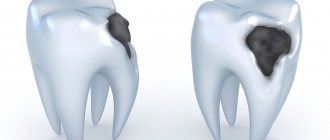Excess iodine
It happens that this substance accumulates in the child’s body, which is why the breath smells accordingly. This usually happens after a holiday at a seaside resort, taking an iodine-containing drug, or if the thyroid gland is not functioning well. Sometimes infants are infected by Klebsiella, a type of bacteria that lives on fruit. It negatively affects the functioning of the stomach and intestines.
Gall
It happens that the outflow of this substance is disrupted, then it is necessary to carry out diagnostics using ultrasound radiation and submit the biomaterial for analysis.
The smell of iron
The appearance of such an aroma indicates that iron deficiency anemia is beginning. In this situation, it is necessary to check the level of hemoglobin in the blood. Afterwards, the baby will be prescribed a vitamin complex to replenish the substance to the daily requirement. The same symptom can be noticed when gastritis, dysbiosis develops, stomach acidity increases, or other problems with the gastrointestinal tract arise.
Urine smell
In fact, this is how ammonia vapors are felt, which signal the development of kidney pathologies or diabetes. This happens due to low insulin levels and impaired carbohydrate absorption.
Why does a child's mouth smell bad?
A stench similar to feces is a very rare phenomenon and is most often inherited. Various metabolic disorders or acute intestinal dysbiosis can be passed on from relatives. Then consultation with an endocrinologist and gastroenterologist is necessary.
Rotten egg smell
In this case, you may also notice the appearance of a white coating on the surface of the tongue. This is a clear signal that gastritis, a stomach ulcer, liver disease or a violation of bile outflow are developing.
Yeast aroma
Such breathing usually indicates the presence of a fungus, but if it is felt from the mouth, then the problem most likely lies in a sore stomach. It’s better to talk about this with your pediatrician first, and he will refer you to a specialist.
Causes of unpleasant odor
An unpleasant odor can occur for various reasons: from stress suffered by a child to a disease of the digestive system. To eliminate an unpleasant odor, sometimes you need to carefully observe oral and dental hygiene. From a very early age, that is, when the baby’s first baby tooth appears, the child should be taught to brush his teeth twice a day.
If the smell from the mouth becomes persistent, then the child should be shown to a dentist, who will check the condition of the child’s gums and teeth. If the teeth are healthy and the gums do not bleed, the dentist will give a referral to a specialized specialist to diagnose the causes of the child’s bad breath.
Types of bad breath
Parents should pay attention if the child's mouth emits a specific odor, which may be:
- acetone, appearing against a background of high temperature. This smell should especially alert parents. The child should be immediately shown to a doctor, as it appears when acetonic syndrome occurs, which is a serious disease;
- A putrid odor occurs due to poor oral hygiene, a sore throat, tonsillitis or pharyngitis. With these diseases, the oral cavity, including the tongue and tonsils, become covered with a white coating, which also appears in cases of stomatitis and caries, and increased stomach acidity. The child should be seen by a doctor for advice and to understand how to act in case of such diseases.
- A purulent odor occurs during chronic inflammation in the child’s nasopharynx, when the tonsils become covered with purulent plaque, and purulent plugs form in the child’s throat, emitting a purulent odor.
- A sour smell occurs when the stomach is too acidic or when inflammatory processes occur in it. The second cause of sour odor is reflux, when gastric juice enters the baby's esophagus.
- A sweetish smell indicates liver disease or the development of cirrhosis.
- A chemical smell appears when there is a disease of the digestive system, especially when there is a disease of the gallbladder.
- The smell of chlorine occurs when gums bleed and periodontal disease develops. In this case, it is necessary to check the condition of the child’s gums and teeth.
Complications of pneumonia and their consequences
19.08.2020
With any cold, complications are very dangerous, which can lead to pneumonia . As a rule, pneumonia the lungs themselves and their tissues, and with complications from pneumonia the entire body can suffer.
Its main causative agent is streptococcal bacteria, although exposure to other bacteria or infections cannot be ruled out. The problem also lies in the fact that if treatment is incorrect or untimely, it will not be beneficial or, on the contrary, will worsen the situation.
If the disease was treated incorrectly or was not completely cured, then this is manifested by characteristic pain in the lungs . There may be both severe pain and slight tingling in different areas; they can be bothersome both constantly and periodically; severe shortness of breath can also be a clear symptom.
Gradually, the condition may become worse, which is why you will have to call an ambulance. As for the consequences, it all depends on how severe the pneumonia and how poorly or poorly it was treated.
It is worth understanding that some consequences can be very serious and even lead to death.
Signs of complications include:
- elevated temperature around 37-38 degrees;
- cough that does not stop even after illness;
- presence of shortness of breath;
- varying degrees of pain in the lungs or near the heart .
As for complications, they are divided into two types:
- “local” - expressed in respiratory failure, abscesses, pneumonia and bronchitis ;
- “general” - shock, sepsis, meningitis and failure develop.
As for the severity of complications, they will also directly depend on the treatment performed.
The obvious consequences include the development of:
- pleurisy - as a result of its development, fluid will accumulate in the pleura, and if infections or bacteria are still present in it, this can lead to the formation of pus in the body. In addition, immunity and resistance to other diseases are significantly reduced;
- Lung abscess – typical for those who suffer from chronic diseases. During it, pus accumulates in the body, the fingers and toes become swollen, and the phlegm in the mouth will have an unpleasant taste. It is accompanied by high fever, weakness, headache and a strong, prolonged cough;
- respiratory failure - a person cannot breathe normally, which sometimes causes the skin to turn blue, bleeding, wheezing and coughing. If left untreated , in severe cases it can be fatal due to the inability to breathe normally;
- sepsis - the blood , which subsequently causes pus to accumulate in the body, which is why it is very life-threatening. The problems are accompanied by extremely high fever (above 40 degrees), severe headaches and vomiting ( nausea ).
If the consequences are not treated , it can lead to toxic or infectious shock. The symptoms of its manifestation may be different, but regardless of them, it can be life-threatening, and therefore treatment should not be delayed.
Published in Pulmonology Premium Clinic
Strange smell from the mouth during an acute respiratory viral infection
When an acute respiratory viral infection occurs against a background of high temperature, a purulent odor emanates from the child’s mouth. This occurs because the tonsils and tongue are covered with a coating that emits the smell of pus. With an inflammatory process in the lungs or sinusitis, halitosis may worsen, which disappears after the child recovers. Rinsing your mouth with antiseptic solutions will help speed up recovery.
Antibiotics for coughs with purulent sputum
If a doctor has prescribed antibiotics to a patient, the entire course must be taken. Do not change the dose or duration, even if there is an improvement in the condition. Take antibiotics in tablet form or intravenously. Only in fairly complex cases, the doctor may prescribe several types of antibiotics. What medications are prescribed:
- What you can do for a cough while breastfeeding: syrups, lozenges, tablets
- Trifamox;
- Amoxiclav;
- Clindamycin.
Each drug acts on different bacteria. Therefore, before prescribing a course, you need to conduct an analysis of the bacterial flora. When coughing with purulent sputum, you need drugs with a strong effect. You should not take antibiotics very often. Bacteria become accustomed to them, which reduces their effectiveness. Also, these medications have a number of side effects and contraindications. It is advisable to take them with probiotics - drugs that normalize the functioning of the intestinal microflora.
Causes of cholitosis in children
Halitosis can develop in children of different ages and for various reasons: from poor oral and dental hygiene or the presence of a foreign object in the baby’s nostril. A doctor who examines a child can determine several causes of cholithosis:
- an incorrectly chosen diet, from which it is necessary to exclude fatty, fried foods flavored with garlic and onions;
- the stressful situation experienced by the baby causes dryness in the baby's cavity, and can cause cholithosis. In case of stress, the child should be given acidified water to drink or the child should be given a slice of tangerine so that he can suck on it;
- unpleasant smell in the morning. Bad breath after sleep is caused by the fact that a sleeping child does not produce saliva, which is a favorable environment for the growth of bacteria. After the morning hygienic brushing of teeth, the smell disappears.
Our specialists
Chikina Svetlana Yurievna
Candidate of Medical Sciences, pulmonologist of the highest category. Official doctor, expert at Russian congresses on pulmonology.
more than 30 years
Kuleshov Andrey Vladimirovich
Chief physician, candidate of medical sciences, pulmonologist, somnologist, member of the European Respiratory Society (ERS).
Experience 26 years
Samoilenko Viktor Alexandrovich
Candidate of Medical Sciences, pulmonologist of the highest category. Nominee of the National Award “Best Doctors of Russia” “Calling”.
30 years of experience
Meshcheryakova Natalya Nikolaevna
Candidate of Medical Sciences, pulmonologist of the highest category, associate professor of the Department of Pulmonology named after. N.I. Pirogov.
Experience 26 years
What to do?
If a child has persistent bad breath, he or she should be shown to a doctor for a comprehensive examination. Usually, when you establish a drinking regime and exclude sweet foods from your diet, the unpleasant odor disappears. Parents should be alarmed by the unpleasant odor emanating from the baby’s mouth, which should be immediately examined by a doctor.
Preventive measures
To prevent the development of cholithosis, the child must follow some preventive measures:
- brush your teeth twice a day (morning and evening);
- parents should organize a diet that contains vegetables and fruits containing phosphorus and calcium;
- observe drinking regime;
- be systematically checked by a dentist and, if you have sick, damaged baby teeth, have them treated, since rotten teeth can be a source of bad breath from the child’s mouth.
Treatment methods
To begin treatment of cough and its root cause, the patient first needs to undergo the necessary tests. It can be:
- radiography;
- blood and urine tests;
- sputum analysis;
- bronchoscopy;
- spirography.
The doctor also conducts a visual examination and only then prescribes medications to improve expectoration of mucus. In addition to them they use:
- Physiotherapeutic procedures;
- Therapeutic gymnastics;
- Acupuncture;
- Immunomodulators;
- Massage;
- Surgical intervention.
Medicines used to treat this symptom are divided into the following categories:
- antibiotics;
- antiviral drugs;
- mucolytics;
- bronchodilators;
- anti-inflammatory drugs;
- homeopathic medicines;
- complex medicines.
The patient should drink frequently and a lot, give up smoking and alcohol, walk and breathe fresh air every day, and eat right.











